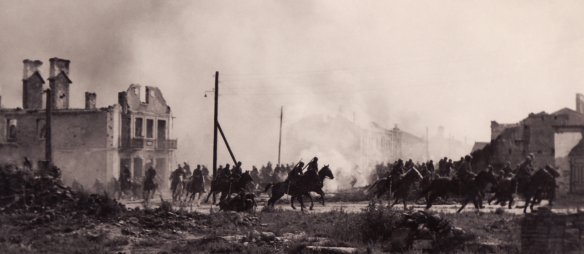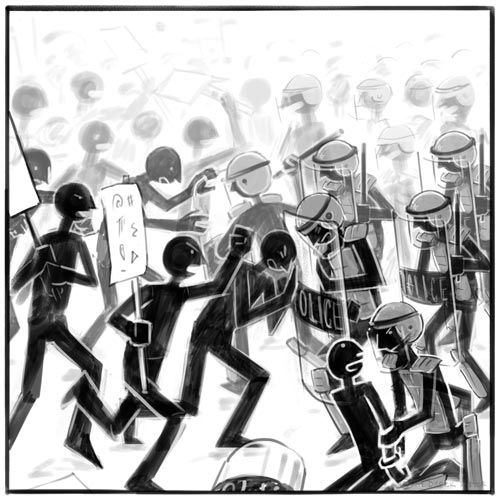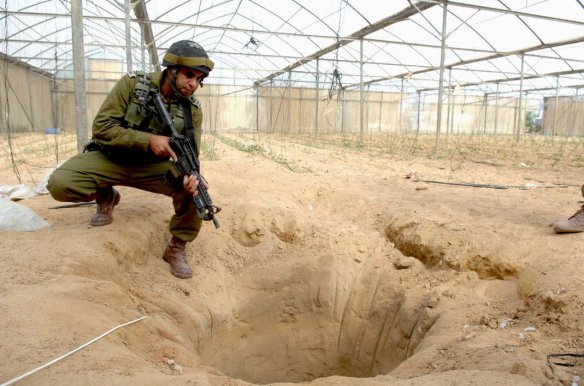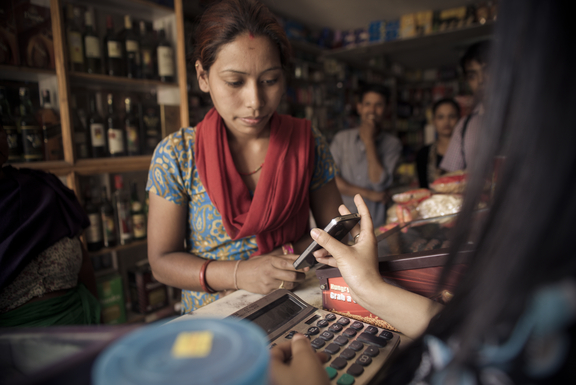Monday 1 September The Eastern Equatoria governor removed Yei County leaders. The SPLM Juba branch asked the parliament to endorse a transitional government. The South Sudan government asked for support for the IGAD protocol on agreed principles. Riek Machar appointed diplomats to represent SPLMiO. Health workers in South Sudan threatened to strike. Tuesday 2 September The… Read more »
Assaulting Ukraine, Putin dares the West to respond

Just 75 years ago, the devastating war arrived to Europe – and this brave Polish cavalry perished fighting tanks. These days tanks are again rolling – and Europe needs to find a way to stop them.
The summit of the North Atlantic Treaty Organization (NATO) that opens in the Welsh Celtic Manor resort tomorrow (September 4) will feature the Ukraine crisis as an agenda item of top priority and extreme urgency. Only a week ago, this crisis appeared manageable as Russian President Vladimir Putin shook hands with his Ukrainian counterpart, President Petro Poroshenko, in Minsk under the watchful eye of Catherine Ashton, the European Union’s High Representative for Foreign Affairs and Security Policy. The next day, however, Russian tanks rolled into the border city of Novoazovsk, catching the Ukrainian forces in the rear and altering the course of hostilities in eastern Ukraine (Kommersant, August 28). For weeks prior to that direct intervention, the rebel forces had been in retreat toward the strongholds in Donetsk and Luhansk, but the arrival of reinforcements from Russia set off a counter-offensive, in the course of which several Ukrainian battalions were surrounded (Polit.ru, August 29).
The pro-Russia forces have not made any further advances so far, not even toward the strategically significant but defenseless Mariupol. Thus, the Russian intervention has stopped just short of a full-blown invasion for the time being, although some 10,000 troops are standing ready along the border with Ukraine (Novaya Gazeta, August 28). Putin has thus delivered a hard blow that is supposed to prove his point: Kyiv cannot win the war against the separatist forces in Donbas. At the same time, however, he has not committed himself to an overt war with Ukraine, which is far from popular in Russian public opinion (Slon.ru, August 28). Apparently, no one in the Kremlin realizes that this strong move has hamstrung the Ukrainian leadership from being able to pursue any kind of political compromise, because doing so would amount to Kyiv capitulating to external aggression. Consequently, the road-maps discussed in Minsk have been effectively canceled (Vedomosti, August 28). Poroshenko presented his case at the EU summit in Brussels, on August 30, explaining that the “anti-terrorist operation” (never an accurate term) has been transformed into a desperate defense against Russian intervention—as a result, he secured an increase in aid as well as a decision to enforce new sanctions (Gazeta.ru, August 31).
The rest of the article is in EDM, 3 September 2014.
Russia talks against militarization of the Arctic – and goes for it
As Russian tanks roll into Ukraine, President Putin promised to act according to the international law in the Arctic. In the same breath, however, he reminded that US strike submarines are concentrated “near Norwegian shores” and their missiles could reach Moscow in 15-16 minutes. The commitment to upgrading the military infrastructure in the High North… Read more »
State Briefing: Jonglei State
State Capital: Bor Approximate population: 1,443,500 Number of IDPs sheltering in the state: 579,700 Jonglei is the largest state in South Sudan and one of the areas hardest hit by conflict. Three days after the civil war started in Juba 15 December2013 the state became a battle ground. The SPLA division led by Peter Gadet… Read more »
This Week in South Sudan – Week 35
Monday 25 August The UN condemned the detention of the ceasefire monitors in Unity State. East African leaders set a new deadline for the South Sudan peace talks. The warring parties in South Sudan signed a new peace deal. Salva Kiir agreed to have a prime minister position in the transitional government. Uganda and Ethiopia… Read more »
Seeing Contention in Black and White: Protest and Protest Policing
How does the police react to situations when protestors are of one ethnicity as opposed to another?

Illustration by Darick Ritter.
This Week in South Sudan – Week 34
Monday 18 August The UN demanded freedom of movement in South Sudan. The South Sudanese government accused the SPLA-in-Opposition of seeking support from Sudan. An SPLM-in-Opposition delegation arrived in Kampala to meet the Ugandan government. Seven people were killed in Lakes State. Tuesday 19 August The radio journalist detained in Juba last week was released. The… Read more »
“Double Effect” in Gaza
Recent weeks have shown us – yet again – how complex and terrible war is. We can all agree that terrorism and brutal fanaticism must be met with robust responses. But it is easy to say that one must do “something” (not to mention that one must do “more”). When we have to specify what that “something” or “more” should be, things immediately become more difficult.

It is true that the Hamas tunnels and rockets have created a clear need, and right, for Israel to defend itself. Photo: Flickr/Israel Defence Forces
Russian August in the Arctic
August is a particular month in the Russian political calendar: It was the Kursk day last week, and this week – it is day of tanks in Prague (21 August 1968) and the day of tanks in Moscow (19-22 August 1991). These days, tanks are rolling over the streets of Donetsk and Luhansk – but… Read more »
New Technology – Better Disaster Relief?
New technology has become central to relief efforts in humanitarian crises. This may make relief efforts more effective, but we can’t assume that the technology will have only a beneficial impact on the recipients of emergency aid.

Testing a new system of emergency assistance in Nepal. Recipients receive virtual vouchers via SMS message on mobile phones that can be used like cash at participating local stores. Photo: Suraj Shakya for Mercy Corps.